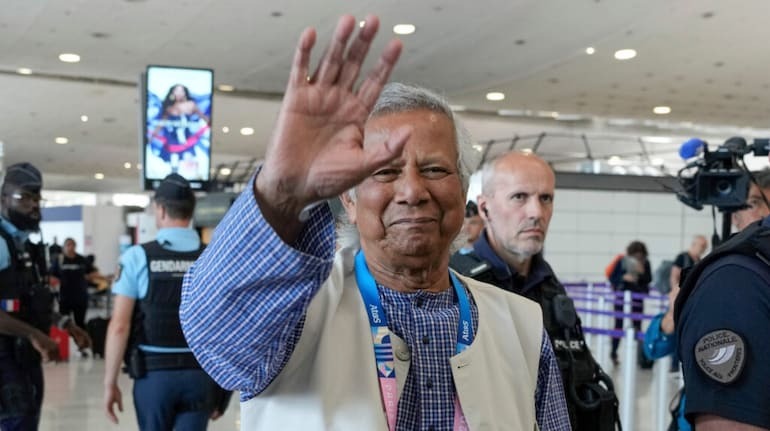
Bangladesh’s Chief Advisor Muhammad Yunus has embarked on a significant four-day official visit to China, aiming to reset bilateral ties following the departure of the Sheikh Hasina government in August last year.
Yunus is scheduled to attend the Boao Forum for Asia, a key strategic and economic meeting held by China, before holding discussions with Chinese President Xi Jinping in Beijing on March 28.
High-Level Talks and Policy Shifts
The Chinese Ambassador has called this the "most important visit by a Bangladeshi leader in 50 years," underlining the potential shift in Bangladesh’s foreign policy. Historically, Bangladesh has balanced its relationships with both India and China. However, Yunus’s engagement with Beijing may signal a reorientation.
During his visit, Yunus is expected to sign at least eight Memorandums of Understanding (MoUs) covering trade, cultural cooperation, port upgrades (including Mongla port), and water management.
Economic Agreements and Investment Opportunities
Bangladesh is encouraging Chinese manufacturers, especially industries facing global trade restrictions, to relocate to Bangladesh. This move would allow them to benefit from preferential access in global markets while also boosting Bangladesh’s manufacturing base.
Bangladesh’s trade volume with China currently stands at USD 25 billion annually. However, exports from Bangladesh to China remain under USD 1 billion. China has already granted zero-tariff access to Bangladeshi goods and is also considering a reduction in loan interest rates for Bangladesh, along with an extension in loan repayment terms.
Recent Chinese Engagements with Bangladesh
Beijing has hosted various Bangladeshi representatives since the change in Dhaka's government. These include Foreign Affairs Adviser Touhid Hossain and political groups like Jamaat-e-Islami and the BNP. Agreements made during these visits include improved trade access, designated hospitals in Kunming for Bangladeshi patients, and potential economic cooperation.
Implications for India and the Region
Yunus’s diplomatic outreach to China occurs just ahead of his requested meeting with Indian Prime Minister Narendra Modi at the upcoming BIMSTEC Summit in Bangkok (April 2–4). India has yet to confirm the meeting.
Key implications for India include:
Strategic Balance: Increased Bangladesh-China ties may shift regional dynamics, challenging India's traditional influence in Dhaka.
Economic Competition: Chinese-backed infrastructure and manufacturing could impact India’s economic interests in the region.
Security Concerns: Potential military and strategic collaboration between Bangladesh and China may raise concerns for India’s defense planners.
Diplomatic Adjustments: India may need to re-evaluate its approach to Bangladesh to ensure continued cooperation and regional stability.
Read More: The Looming Shadow of War How Iran, Israel, and the US are Navigating a Dangerous Week

 Share
Share



